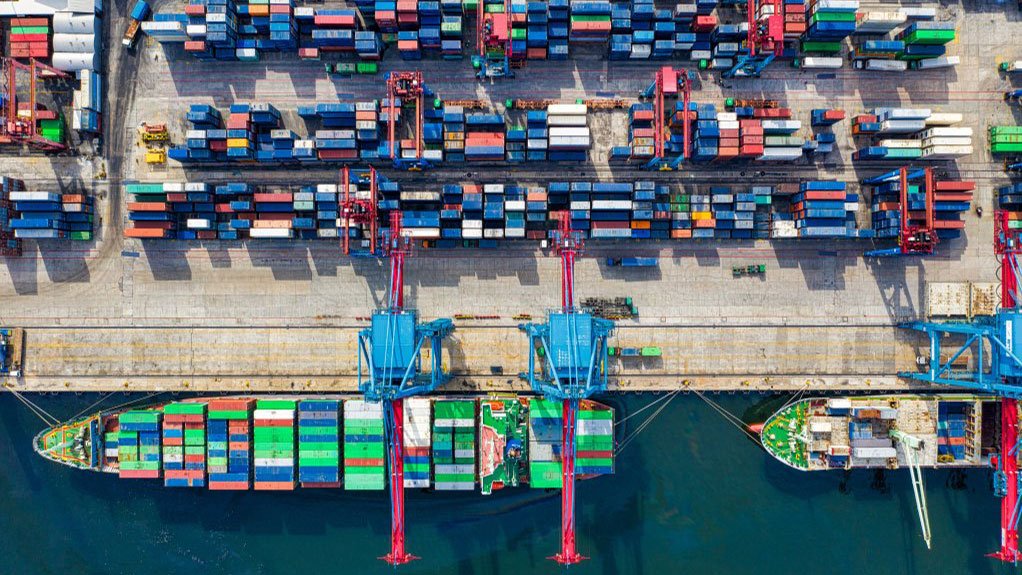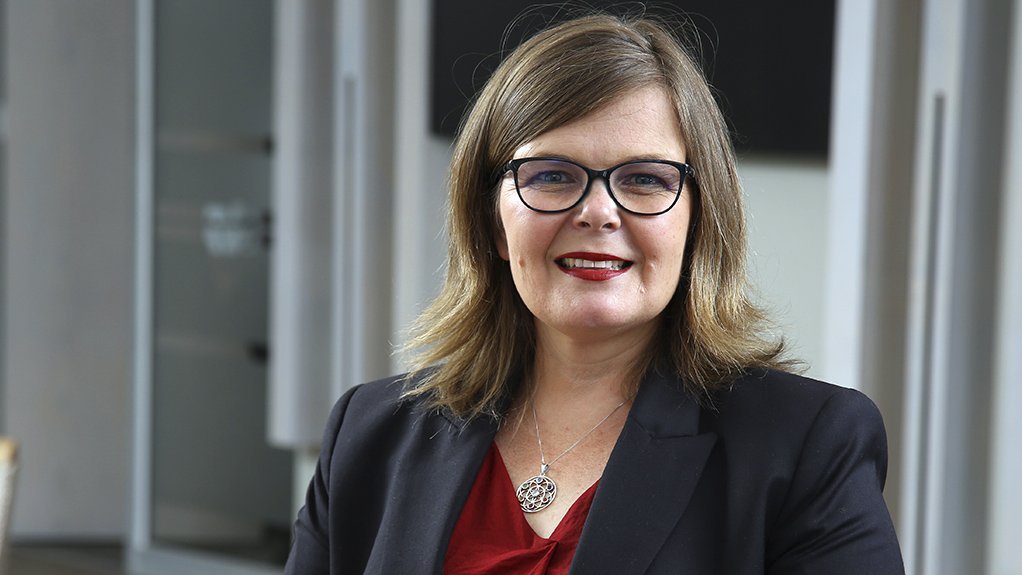Corruption-free supply chains vital for shared value





NEW IMPERATIVE Mines are having to consider how to make their procurement more transparent, and to achieve this in a systematic way
Lisl Pullinger, Principal Consultant: Sustainability, SRK Consulting Lisl has 20 years’ experience in stakeholder communication and community development. Her work in the mining sector in South Africa and the Democratic Republic of Congo has included development policy, programme strategy and design, digital stakeholder engagement and sustainability reporting, as well as responsible sourcing advisory services.
Jeff Geipel, Managing Director: Mining Shared Value, Engineers Without Borders Canada The founder of Mining Shared Value in 2012, Jeff had earlier established Fair Trade Vancouver, which became a model for municipal-based fair-trade organisations across Canada. He holds a master’s degree in international development from the London School of Economics and has published extensively in respected media.
Andrew van Zyl, Director and Principal Consultant, SRK Consulting Andrew holds a B Eng (Chemical) and M Com (Financial Economics) and has worked in production and project roles in mining. Since 2006, his focus has been on strategy, business development and valuation. Among his professional roles is chairmanship of the South African Mineral Asset Valuation (SAMVAL) Committee.
Mines are increasingly required to implement programmes showing good practice in local procurement. International standards – as well as local policy and regulation – provide requirements and guidelines, but what really works in the field? In this series, SRK Consulting’s Lisl Pullinger and Andrew van Zyl, together with Mining Shared Value’s Jeff Geipel, explore five local procurement topics, highlighting good practice principles, providing case studies from mines and recommending practical initiatives mines can take to improve how they apply local procurement programmes. This third article focuses on ensuring exemplary supplier conduct and preventing corruption in the supply chain.
With 50% to 70% of all in-country mining- related expenditure going to procurement, it is a significant lever for local economic development. Within this context, however, the high risk of corruption in the procurement of goods and services, and problematic supplier practices, has often been overlooked.
Global industry and civil society initiatives have tended to focus on transparency in mining companies’ payment of taxes to governments, and on how governments use this revenue from mining royalties and profits. Only recently has attention been formally directed at the ways in which irregularities in the supply of goods and services could be more systematically addressed.
A recent research report from the Natural Resource Governance Institute, ‘Beneath the Surface: The Case for Oversight of Extractive Industry Suppliers’, points out that just under a trillion dollars a year is spent globally on suppliers by oil, gas and minerals companies. It warns that weak governance of suppliers can disadvantage companies, governments and host communities – through cost overruns that undermine company profits and government revenues, suboptimal taxation of supplier profits, and local procurement efforts not fully benefiting host countries or communities. A lack of transparency in procurement also raises the risk of bribery and favouritism.
Pressure on mining companies is, therefore, increasing – to ensure that their supply chains are not inadvertently supporting ‘problematic processes’ in suppliers, and that their procurement processes are not hindered by corruption.
Among the recent high-profile examples of these risks was a case involving a Canadian mining company operating in Eritrea, where a construction services supplier was alleged to be engaging in forced labour. The company, since acquired by a Chinese company, was sued in the Canadian court system. In a landmark ruling, the Canadian Supreme Court ruled the case could be heard in Canada, even though the alleged abuse took place in another country.
The case was recently settled out of court, but the strong point had been made: there is less and less tolerance for any misstep in procurement matters. There is now considerable risk to mining companies that cannot demonstrate that they have the necessary due diligence systems in place to prevent taking on suppliers that engage in corrupt dealings, for instance. Essentially, mining companies are starting to be held responsible for the behaviour of their suppliers.
It is worth remembering that the environmental, social and governance controls being applied to mines by national laws and regulations tend to view mines not as islands, but as systems with upstream and downstream linkages. These consider the streams flowing into and out of the system. Mines are having to consider how to make their procurement more transparent, and to achieve this in a systematic way that complies with both local and international requirements.
A transparent process is, of course, not just for the benefit of stakeholders, but for mines themselves – helping them to ensure that they do not pay excessive prices for goods and services. The idea behind an open and accessible procurement process is to give fair access to a wider variety of suppliers, including local businesses. Where tender procedures are unfairly restricted, this tends to raise the possibility of prices being artificially inflated – as the normal competitive principles are not followed. By following protocols that ensure an open and transparent procurement process, mines will invariably create firmer ground for good value transactions that improve commercial sustainability.
The way forward, then, is for mining companies to structure their procurement reporting according to international guidelines. The Mining Local Procurement Reporting Mechanism is a publicly available framework that several companies have recently adopted to provide this information. In addition, while procurement is not directly part of the Extractive Industries Transparency Initiative, several countries have started to request information on this topic from both mining and oil and gas companies.
In addition to mining companies being able to mitigate risks by providing more information about their procurement processes and impacts, better measurement and transparent reporting of local spending can help actors work together to increase local content – a key political issue across African mining.
Technology can also be harnessed in practical ways to improve procurement fairness; suitably automated supplier portals, for instance, can remove the ability of manual systems to subvert tender processes.
The key message is that transparency makes for cleaner supply chains, which is better for everyone. It fosters the practical application of good procurement policies and regulations, holds down mining costs, and allows the value generated by mining to be most equitably shared.
Comments
Press Office
Announcements
What's On
Subscribe to improve your user experience...
Option 1 (equivalent of R125 a month):
Receive a weekly copy of Creamer Media's Engineering News & Mining Weekly magazine
(print copy for those in South Africa and e-magazine for those outside of South Africa)
Receive daily email newsletters
Access to full search results
Access archive of magazine back copies
Access to Projects in Progress
Access to ONE Research Report of your choice in PDF format
Option 2 (equivalent of R375 a month):
All benefits from Option 1
PLUS
Access to Creamer Media's Research Channel Africa for ALL Research Reports, in PDF format, on various industrial and mining sectors
including Electricity; Water; Energy Transition; Hydrogen; Roads, Rail and Ports; Coal; Gold; Platinum; Battery Metals; etc.
Already a subscriber?
Forgotten your password?
Receive weekly copy of Creamer Media's Engineering News & Mining Weekly magazine (print copy for those in South Africa and e-magazine for those outside of South Africa)
➕
Recieve daily email newsletters
➕
Access to full search results
➕
Access archive of magazine back copies
➕
Access to Projects in Progress
➕
Access to ONE Research Report of your choice in PDF format
RESEARCH CHANNEL AFRICA
R4500 (equivalent of R375 a month)
SUBSCRIBEAll benefits from Option 1
➕
Access to Creamer Media's Research Channel Africa for ALL Research Reports on various industrial and mining sectors, in PDF format, including on:
Electricity
➕
Water
➕
Energy Transition
➕
Hydrogen
➕
Roads, Rail and Ports
➕
Coal
➕
Gold
➕
Platinum
➕
Battery Metals
➕
etc.
Receive all benefits from Option 1 or Option 2 delivered to numerous people at your company
➕
Multiple User names and Passwords for simultaneous log-ins
➕
Intranet integration access to all in your organisation






















